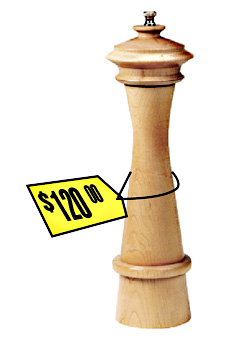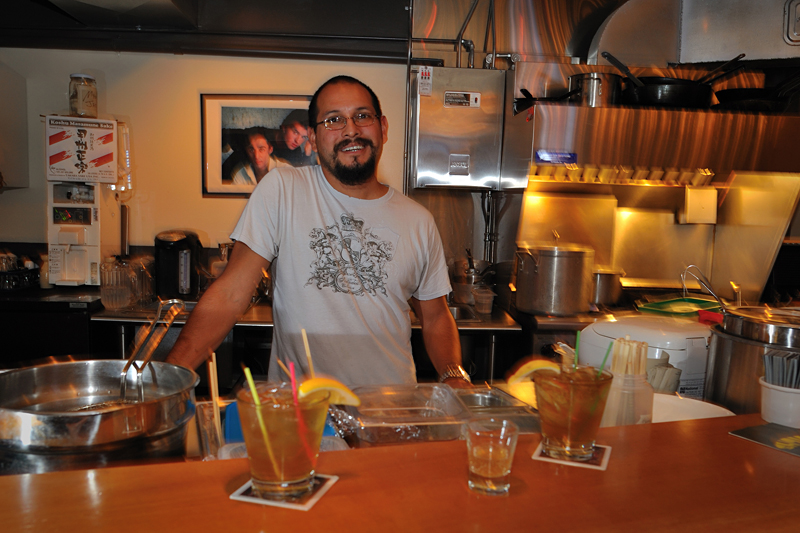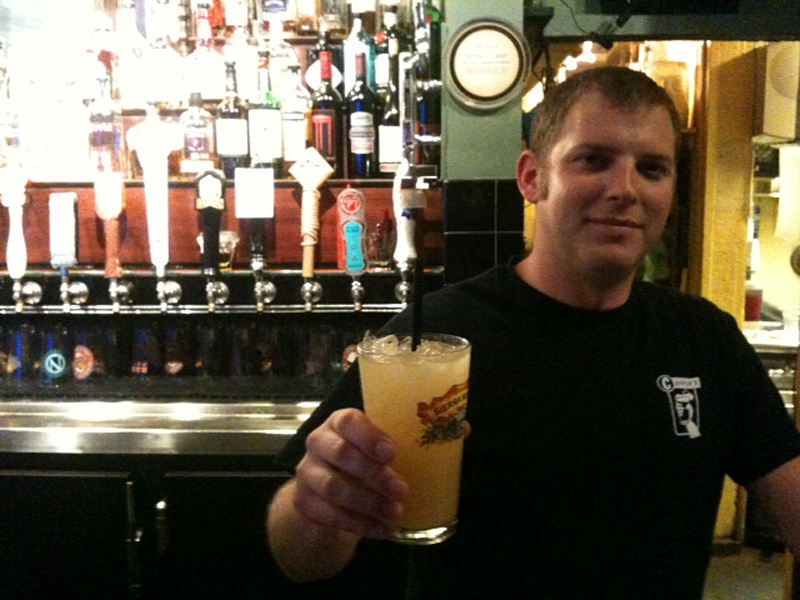Victoria Pardee was looking out the window of the Art Institute of Seattle, where she was helping set up a culinary arts program. Staring at Seattle’s most famous landmark, the Space Needle, she noticed something: It looks a lot like a pepper grinder.
Pardee came up with a general idea for the design: The top would twist the mill and black flecks would fall from the bottom, flavoring salads and roasts. She had a prototype built and took it to the administration at the Space Needle Corp.
They were “just astounded,” she says. “I got really excited.” More than 10 years later, they’re available in gift shops like Made in Washington and craft boutiques like Frank and Dunya in Fremont.
In addition to a steep price tag—$120 and up—the foot-tall grinder has its own tragic backstory. As Pardee started finding buyers, she needed a woodworker to help manufacture the item. She landed on lathe-work specialist Steve Blenk of Sequim. For almost a decade, Blenk produced Pardee’s mills as they became popular with local restaurants.
But on Nov. 24, 2004, Blenk and his son were in a car accident. While his son walked away with a broken wrist, Blenk didn’t make it. He was 48 years old.
After Blenk’s passing, Pardee stopped selling the pepper mills, turning her attention to the family lumber business. But Ann Dingwall, a buyer for Made in Washington, didn’t want to stop stocking the popular grinders. Hence, the company enlisted local woodworker Richard Steppic to resume the line. He picked up the licensing rights from the Space Needle for $500 or 5 percent of sales, whichever turns out to be bigger.
Pardee isn’t reaping the rewards of additional sales, she says. “It was my idea, but they felt they owned the rights to the idea.” She adds that rather than fight it, she just let it go. “When we were doing them it was just a lot of fun.”







